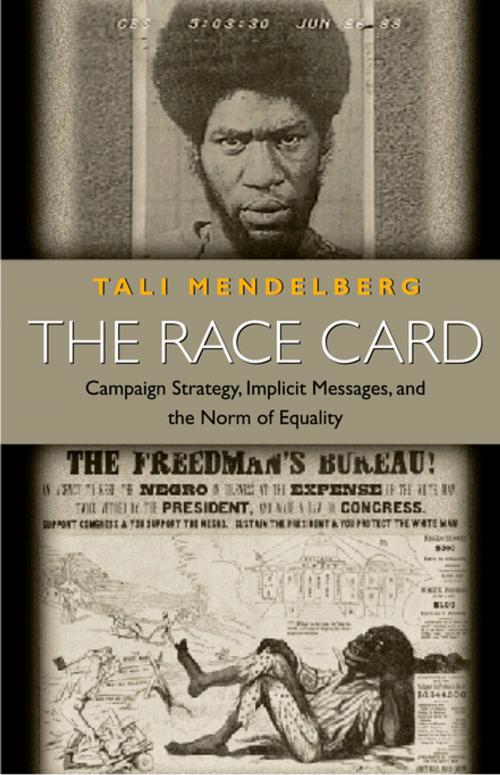The Race Card
Campaign Strategy, Implicit Messages, and the Norm of Equality
Nonfiction, Social & Cultural Studies, Political Science, Government, Elections| Author: | Tali Mendelberg | ISBN: | 9781400889181 |
| Publisher: | Princeton University Press | Publication: | October 9, 2017 |
| Imprint: | Princeton University Press | Language: | English |
| Author: | Tali Mendelberg |
| ISBN: | 9781400889181 |
| Publisher: | Princeton University Press |
| Publication: | October 9, 2017 |
| Imprint: | Princeton University Press |
| Language: | English |
Did George Bush's use of the Willie Horton story during the1988 presidential campaign communicate most effectively when no one noticed its racial meaning? Do politicians routinely evoke racial stereotypes, fears, and resentments without voters' awareness? This controversial, rigorously researched book argues that they do. Tali Mendelberg examines how and when politicians play the race card and then manage to plausibly deny doing so.
In the age of equality, politicians cannot prime race with impunity due to a norm of racial equality that prohibits racist speech. Yet incentives to appeal to white voters remain strong. As a result, politicians often resort to more subtle uses of race to win elections. Mendelberg documents the development of this implicit communication across time and measures its impact on society. Drawing on a wide variety of research--including simulated television news experiments, national surveys, a comprehensive content analysis of campaign coverage, and historical inquiry--she analyzes the causes, dynamics, and consequences of racially loaded political communication. She also identifies similarities and differences among communication about race, gender, and sexual orientation in the United States and between communication about race in the United States and ethnicity in Europe, thereby contributing to a more general theory of politics.
Mendelberg's conclusion is that politicians--including many current state governors--continue to play the race card, using terms like "welfare" and "crime" to manipulate white voters' sentiments without overtly violating egalitarian norms. But she offers some good news: implicitly racial messages lose their appeal, even among their target audience, when their content is exposed.
Did George Bush's use of the Willie Horton story during the1988 presidential campaign communicate most effectively when no one noticed its racial meaning? Do politicians routinely evoke racial stereotypes, fears, and resentments without voters' awareness? This controversial, rigorously researched book argues that they do. Tali Mendelberg examines how and when politicians play the race card and then manage to plausibly deny doing so.
In the age of equality, politicians cannot prime race with impunity due to a norm of racial equality that prohibits racist speech. Yet incentives to appeal to white voters remain strong. As a result, politicians often resort to more subtle uses of race to win elections. Mendelberg documents the development of this implicit communication across time and measures its impact on society. Drawing on a wide variety of research--including simulated television news experiments, national surveys, a comprehensive content analysis of campaign coverage, and historical inquiry--she analyzes the causes, dynamics, and consequences of racially loaded political communication. She also identifies similarities and differences among communication about race, gender, and sexual orientation in the United States and between communication about race in the United States and ethnicity in Europe, thereby contributing to a more general theory of politics.
Mendelberg's conclusion is that politicians--including many current state governors--continue to play the race card, using terms like "welfare" and "crime" to manipulate white voters' sentiments without overtly violating egalitarian norms. But she offers some good news: implicitly racial messages lose their appeal, even among their target audience, when their content is exposed.















